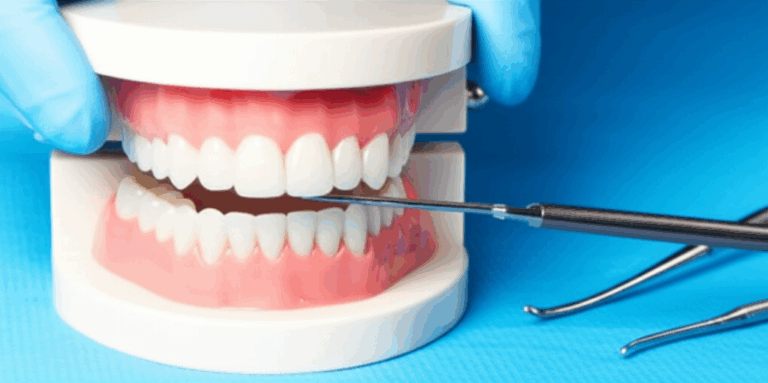
Does Wellcare Cover Dental Implants? Understanding Your Benefits
Wondering if Wellcare covers dental implants? You’re not alone. Dental implants cost a lot, and many seniors wish their insurance paid for them. In this article, I’ll break down how Wellcare Medicare Advantage plans handle dental implants, where you stand, and smart ways to make the most of your benefits. I’ll also share practical tips to save on dental implants—even if your plan comes up short.
Table of Contents
What is Wellcare and How Does it Work?
When I turned sixty-five, all this Medicare stuff felt confusing. If you’re like me, you want to keep things simple. Wellcare is a company that sells Medicare Advantage plans. These are called Part C plans and are run by private insurance companies—like Wellcare, Humana, and UnitedHealthcare—not the government.
If you pick Wellcare instead of Original Medicare, you might get extra things like vision, hearing, or dental help. That’s why so many people sign up, hoping to get more for their money.
When you look at dental coverage, Wellcare plans can be different based on where you live and which plan you choose (like an HMO or PPO). You always want to check your Summary of Benefits for the real details.
What Dental Services Does Wellcare Usually Cover?
Let’s keep this clear. Most Wellcare Medicare Advantage dental plans pay for routine care, like:
- Cleanings
- Dental checkups
- Bitewing and full-mouth X-rays
- Basic fillings
- Simple tooth removals
You might also see some help for dentures, partials, or maybe crowns and bridges. These are called “basic” or sometimes “major” care, but often there are money limits.
Here’s a quick table showing the usual dental help:
| Service | Usually Covered? | Notes |
|---|---|---|
| Exams/Cleanings | Yes | Twice a year is common |
| X-rays | Yes | Often yearly or as needed |
| Fillings/Extractions | Yes (Simple) | Harder removals might not be covered |
| Dentures/Bridges | Sometimes | Check plan details, limits apply |
| Dental Implants | Rarely | Coverage is very little or not allowed |
Dental implants are almost always in the “major” category. That’s where Wellcare—and almost all Medicare Advantage plans—start to say, “No, sorry.”
Does Wellcare Cover Dental Implants? The Straight Answer
You want a fast answer…so here it is:
Most of the time, Wellcare does not pay for dental implants.
Most Wellcare dental plans clearly say you can’t get them. Why? They say dental implants are “optional,” “cosmetic,” or “not needed for your health.” So if you see a dentist or mouth doctor, and they say you need implants, your insurance might only help with pulling the bad tooth—not the implant.
But don’t give up yet! There are a few rare times they help. Some special extra dental options or certain plans may give you a small yearly amount for implants, but it almost never pays the whole price. Even then, the help is small—sometimes just $1,000 or $2,000 a year—which doesn’t go far if you’re looking at a $20,000 bill for a full set of implants.
Why Don’t Most Plans Cover Implants?
People always ask: Why won’t insurance pay for something as important as a new tooth?
Problem: Dental implants cost a lot. Here’s why insurance companies, including Wellcare, aren’t quick to pay for implants:
- Implants are pricey. One implant can cost $3,000–$6,000.
- Insurance wants to do the most for the most people. So, they pay for things most people need (like cleanings), not big things only a few people want (like implants).
- Implants are seen as “cosmetic.” It’s something you want, not a health need, unless it’s from a big injury or sickness.
- Medicare makes the rules. Original Medicare never paid for routine dental—so most Medicare Advantage plans LIKE Wellcare don’t have to add it, either.
Agitate: It almost feels unfair, doesn’t it? You pay every month, brush your teeth, and then—when you finally need something strong and lasting—your plan says “sorry.” A lot of seniors are left worried about eating, smiling, and living well.
Solution: There are ways to work around it, but you have to get creative. I’ll show you how.
When Might Wellcare Pay for Dental Implants?
Let’s talk about the few times a “no” can turn into a “maybe.” Here’s when Wellcare might help with dental implants:
1. Medical Need
If your tooth loss is because of big health problems—like losing your jawbone to cancer surgery or from a big accident—a doctor may say implants are “needed for your health.” For this, you must:
- Get clear letters from your dentist and your doctor
- Ask for approval first—that means your insurance has to review and say “okay” before you get the treatment
Even with this, payment isn’t certain. The insurance might only help if your case fits their strict rules. You might have to fight the decision if you get turned down.
2. Extra Dental Options
Sometimes, Wellcare sells special “add-ons” (extra things you pay for) that give you more dental help. A few of these might pay for some “big dental work,” which sometimes includes implants. You’ll see this in the plan’s yearly maximum for dental (like $1,500). But if your bill is $5,000, you will still owe most of it.
3. Special Dentist Deals
Some dentists in your plan’s network might give you small discounts or better “member prices” for implants. Always ask.
If you’re interested in where dental implants fit in care, check out this implant dental laboratory page to see how labs help make better smiles.
How Much Do Dental Implants Cost?
Let’s not hide the price. Here’s what you’re looking at, from the American Academy of Implant Dentistry and the Consumer Guide to Dentistry:
| Type of Implant | Average Cost per Tooth/Arch |
|---|---|
| Single Tooth Implant | $3,000 – $6,000 (with crown) |
| Bone Graft (if needed) | $500 – $3,000 more |
| Full Mouth (All-on-4/Full Arch) | $15,000 – $30,000 per row |
| Both Arches | $30,000 – $60,000+ |
These prices include the implant post, part that connects it, and crown. If you need extra work (like fixing bone or lifting sinuses), it costs even more.
Most dental insurance plans, including Wellcare, stop their dental help at just $1,000 to $2,000 a year. Compare that to the cost of one implant, and you’ll see why you might need to think of other ways to pay.
Are There Ways to Lower the Cost if You Need Implants?
Things might look rough, but you do have choices! If Wellcare doesn’t pay enough (or at all), try these easy ideas:
Join a dental discount program. Instead of the full fee, you get 10–60% off regular prices if you use certain dentists. These plans are good if you need a lot of dental work soon.
Ever want to be a student’s case? Dental schools teach new dentists and charge less for tough treatments because experienced doctors are watching. You’ll need more visits and some patience, but you really save money.
Lots of towns have nonprofit dental clinics. These places give care for lower prices—sometimes based on your income.
Some dental offices let you pay part by part. Others work with companies that give out loans for health or dental care. Read the details, so you don’t get stuck with high interest rates.
If you were in the armed forces, check if you can get VA dental care. The VA pays for implants sometimes—especially if you lost teeth from an injury while serving.
Some dentists give small breaks to seniors or people who really need it. You’ll never know if you don’t ask.
If you want to see how labs help make things cheaper, look at this china dental lab that teams up with clinics to make crowns, dentures, and bridges for less money.
Can Dentures or Bridges Be a Better Option?
If you’re shocked at implant prices, you’re not alone. That’s why people think about dentures or dental bridges. These things:
- Are almost always in Wellcare’s dental plans as “major care”
- Cost much less (dentures can start at $500–$1,500 per set; bridges cost about $2,000–$5,000 for a space)
- Let you chew and talk better than having no teeth
But each has its good and bad points. Dentures might move and break over time. Bridges need the teeth next to the spot to be healthy.
Ask your dentist, “What’s best for me—implants, dentures, or bridges?” For more about this, check out this removable denture lab to see the new denture choices.
How to Check Your Specific Wellcare Plan
Health insurance is tricky. But here are some steps that make it easier to know your Wellcare dental implant help:
Step 1: Look at Your Summary of Benefits (SOB)
Your plan’s SOB lists every benefit—including dental. Look for words like “implant,” “big dental work,” or “yearly maximum.”
Step 2: Call Wellcare Member Services
Pick up the phone and ask Wellcare right away. Here’s what to say:
- Do you pay for dental implants?
- Are there any special or health reasons you’d cover them?
- What is the yearly dental maximum for my plan?
- Can I get a list of dentists in my plan?
Step 3: Talk to Your Dentist
A good dentist knows how to fill out the right forms. If you might get help for a special case (like injury or jaw surgery), ask your dentist for help with approval letters and paperwork that shows you really need it for your health.
Stay organized. Keep any emails and letters for your files—especially if your claim is turned down and you want to fight it.
Making the Best Dental Choices with Wellcare
If your plan doesn’t pay for dental implants, don’t give up. Here’s what you can do next:
Insurance won’t always pay for what you want, but taking charge always helps you get the best care you can for your teeth.
Frequently Asked Questions
Q: Does Wellcare pay for dental implants for everyone?
A: No. Help is very rare and really only for big health reasons with doctor’s proof.
Q: What’s the usual price I pay for dental implants?
A: For one tooth, plan to pay $3,000–$6,000. For a mouth full, it’s over $30,000.
Q: What else can I do if my plan says no?
A: Look into discount plans, dental schools, community clinics, or try dentures and bridges.
Q: Will an extra dental plan help?
A: Maybe. Some let you add or buy extra dental help, but the yearly cap is often too small for full implants.
Key Takeaways
- Wellcare dental plans usually do not pay for dental implants. Most of the time, they only pay in very rare, health-related cases.
- Implants are very expensive—way more than most dental plans cover.
- You have choices: discount plans, dental schools, payment plans, VA benefits, and old-school dentures or bridges.
- Always check your plan’s Summary of Benefits and call Wellcare for the real answer.
- Be prepared—save, compare, and ask about every choice before you decide.
Getting dental implants is a big step. With know-how and planning, you can find the best way to fix your smile—even if your insurance doesn’t pay for it.








